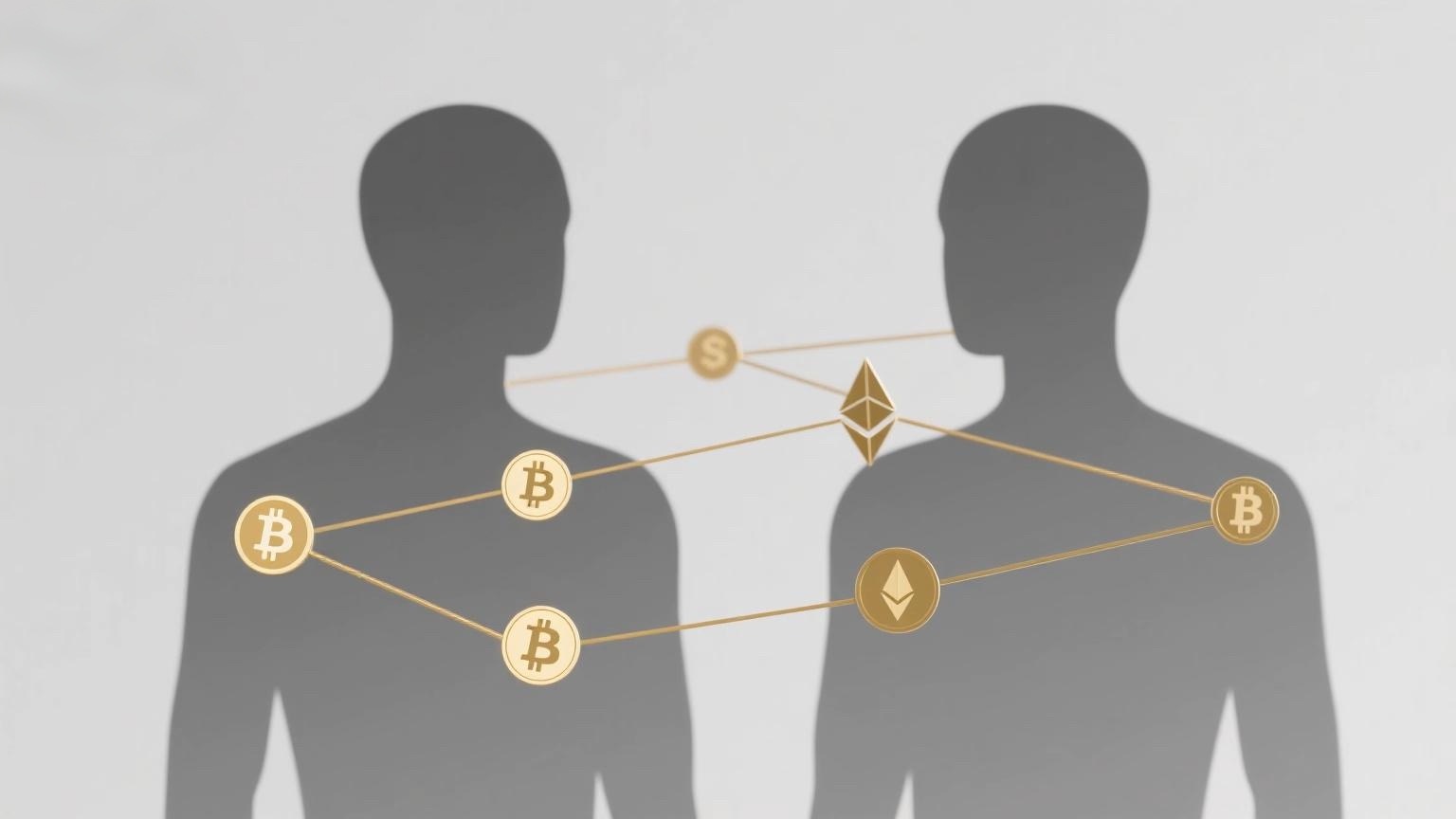
Financial markets are typically organized in two forms: exchanges and over-the-counter (OTC) trading. Exchanges (such as stock exchanges or various cryptocurrency exchanges) publicly match buyers and sellers, with all transactions completed "on-exchange." All traders can see the execution prices of all assets, regardless of whether they participated in the transaction.
OTC trading, on the other hand, occurs directly between two parties, with one party typically being a "trading desk." A trading desk is a commercial entity specialized in buying and selling a specific type of asset. In OTC transactions, the parties agree on a price in advance before executing the trade; only the involved parties know the transaction's volume and price.
For cryptocurrencies, unlike exchange-based trading, OTC refers to the private matching of buyers and sellers outside regular exchanges, facilitating direct large-volume transactions of crypto assets to avoid impacting market prices. However, compared to exchanges, OTC trading typically carries higher counterparty risks.
As trading volumes grow, OTC trading is rapidly becoming an important alternative method for accessing cryptocurrencies in Africa.
OTC trading desks are divided into two types: principal desks and agency desks.
Principal Desk: Uses its own capital to buy and sell crypto assets for clients and bears the risk of price fluctuations during the trading window. For example, if a client requests to purchase 500 BTC, the principal desk will first acquire the assets using its own funds and then deliver them to the client at the pre-agreed price, even if the market price rises during this period, with the desk absorbing the price difference.
Agency Desk: Acts solely as an intermediary between buyers and sellers, without using its own funds. If the price moves unfavorably before the transaction is completed, the client must adjust the quote and bear the market risk. The agency desk charges a matching service fee.
Global Cryptocurrency OTC Trading
Finery Markets data shows: Driven by institutional capital inflows and macroeconomic tailwinds, the global cryptocurrency OTC market expanded significantly in 2024, primarily fueled by surging stablecoin demand and increased crypto-to-crypto trading. Bitcoin accounted for 22% of total OTC trading volume, with annual OTC trading volume growing 106% year-over-year, and stablecoin trading volume increasing by 147%, marking an active year for institutional and large-scale digital asset trading.
Key events behind this growth include:
Spot ETF Launches: The approval of Bitcoin (BTC) and Ethereum (ETH) spot ETFs provided institutional investors with compliant and convenient entry channels.
Regulatory Tailwinds: The pro-crypto stance of the Trump administration after taking office significantly boosted spot trading volume in Q4 2024, bringing greater regulatory certainty and further stimulating institutional participation.
Dual Peaks in Price and Stablecoins: In December, Bitcoin broke through $100,000 to reach a new all-time high, while stablecoins solidified their market dominance as the primary bridge between traditional and digital finance.
Regional Distribution: Europe led institutional spot OTC demand with a 38.5% share, followed by North America, Asia, and the Middle East, each accounting for 15.4%.
Advantages of OTC Trading
OTC crypto settlement has become an important complement to exchange markets, especially for enterprises requiring large-volume, fast, and compliant digital asset settlements. The following five core advantages are particularly noteworthy for global enterprises:
Deep Liquidity
OTC desks aggregate large buy/sell orders outside exchanges, enabling enterprises to execute bulk crypto asset or stablecoin trades in one go without splitting order books. Transactions are fully executed at negotiated prices, avoiding partial fills or slippage common on public exchanges.
Compliance and Transparency
Reputable OTC platforms (e.g., Quidax) implement comprehensive KYC/AML procedures, manage whitelists for counterparties and wallet addresses, provide auditable transaction trails, and hold local licenses (e.g., Nigeria SEC, South Africa FSCA), offering full assurance to finance and compliance teams.
Ultra-Fast Settlement
Unlike traditional banking channels with multi-day clearing cycles, OTC crypto settlements (especially stablecoins) are typically completed within minutes, significantly reducing settlement risks and accelerating working capital turnover.
Effortless Large-Volume Execution
OTC desks specialize in single transactions worth six or even seven figures (USD), completing them in one order to avoid market impact from large public orders, ensuring price stability.
Personalized Service and Negotiation Flexibility
OTC desks offer customized quotes, flexible settlement methods (fiat or stablecoins like USDT/USDC), and direct price negotiation, allowing enterprises to tailor transaction structures to their cash flow needs, hedging strategies, and treasury policies. OTC trades are executed privately outside exchanges, especially suited for large transactions, ensuring transaction details remain confidential.
















